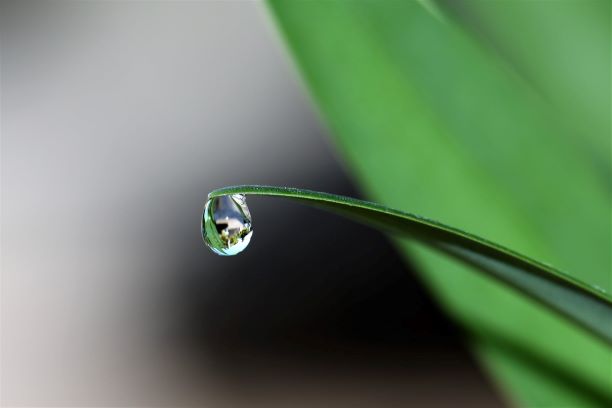

As Precious As It Looks
According to a study published in the journal Nature, researchers found that under a warming climate, plants and soil may start absorbing less CO2, further accelerating the rate of change.
“We have this image of the planet getting very, very green as we move into the future,” said Pierre Gentine, a professor in the Department of Earth and Environmental Engineering at Columbia University and an author of the study. “But it may be the opposite.”


It is well known among climate researchers that atmospheric concentrations of carbon dioxide increase during dry years, a sign that the earth is absorbing fewer emissions.
When the soil is dry, plants also go under stress and cannot absorb as much CO₂ to perform photosynthesis. At the same time, because dry conditions are often accompanied by warm temperatures, microorganisms in the soil, which are more productive when it’s warm, release more CO₂.
As the climate changes, scientists can clearly predict that there will be more extreme weather in the coming years. That means extreme droughts, followed by years of heavier than normal rainfall, such events will become more likely.
To understand whether these conditions would balance out, Dr. Gentine and his colleagues ran four different climate simulations and used satellite observations which allowed them to observe photosynthesis from space. The goal was to see the impact of soil moisture on Earth’s ability to absorb greenhouse gas emissions.
Though plants and soil could absorb more CO₂ during the wetter years, it did not make up for their reduced ability to absorb CO₂ in the years when soil was dry.
“Basically, carbon uptake is not a zero-sum game,” Dr. Gentine said. Even when a drought year is followed by a year as wet as the previous one was dry, it is not enough to compensate for the dry year, the researchers found.
[related_post]
Scientists are already beginning to see more of these sorts of climactic seesaws. As they occur, they will reinforce global warming, the new research suggests. Today, plants and soil around the world absorb roughly a quarter of the greenhouse gases that humans release into the atmosphere, helping the Earth avoid some of the worst effects of climate change. In an ideal situation, as levels of carbon dioxide increased, plants would soak up more of these emissions, helping to fuel their growth.
But the recent findings suggest that warmer climactic condition also deter plants and forests to effectively absorb GHGs. These results highlight the importance of compound extreme events and their threats for the capability of continents as well forests to act as an effective carbon sink.
India is undergoing a significant influx of urban migration and a reclassification of rural areas,…
India’s quest toward green hydrogen economy received a significant boost with a strategic MoU between…
A new report by S&P Global has revealed that India’s growing biofuels industry is emerging…
In a significant breakthrough for India’s renewable energy and dairy sectors, dairy major Amul has…
Renewable energy conglomerate Anaergia Inc, through its subsidiary, Anaergia S.r.l., entered into a contract with…
Reliance Industries Ltd (RIL) Chairman Mukesh Ambani has announced a massive ₹75,000 crore investment in…